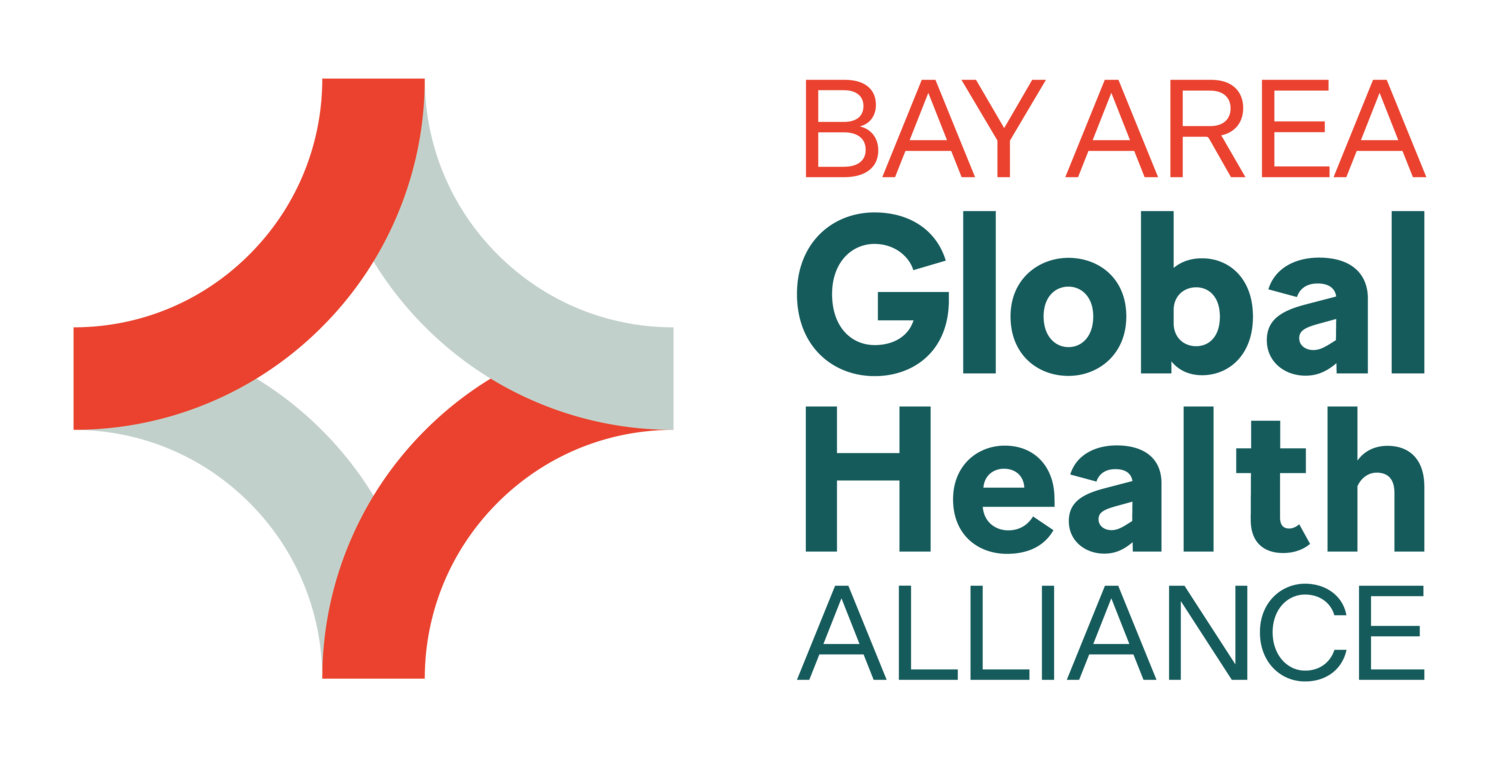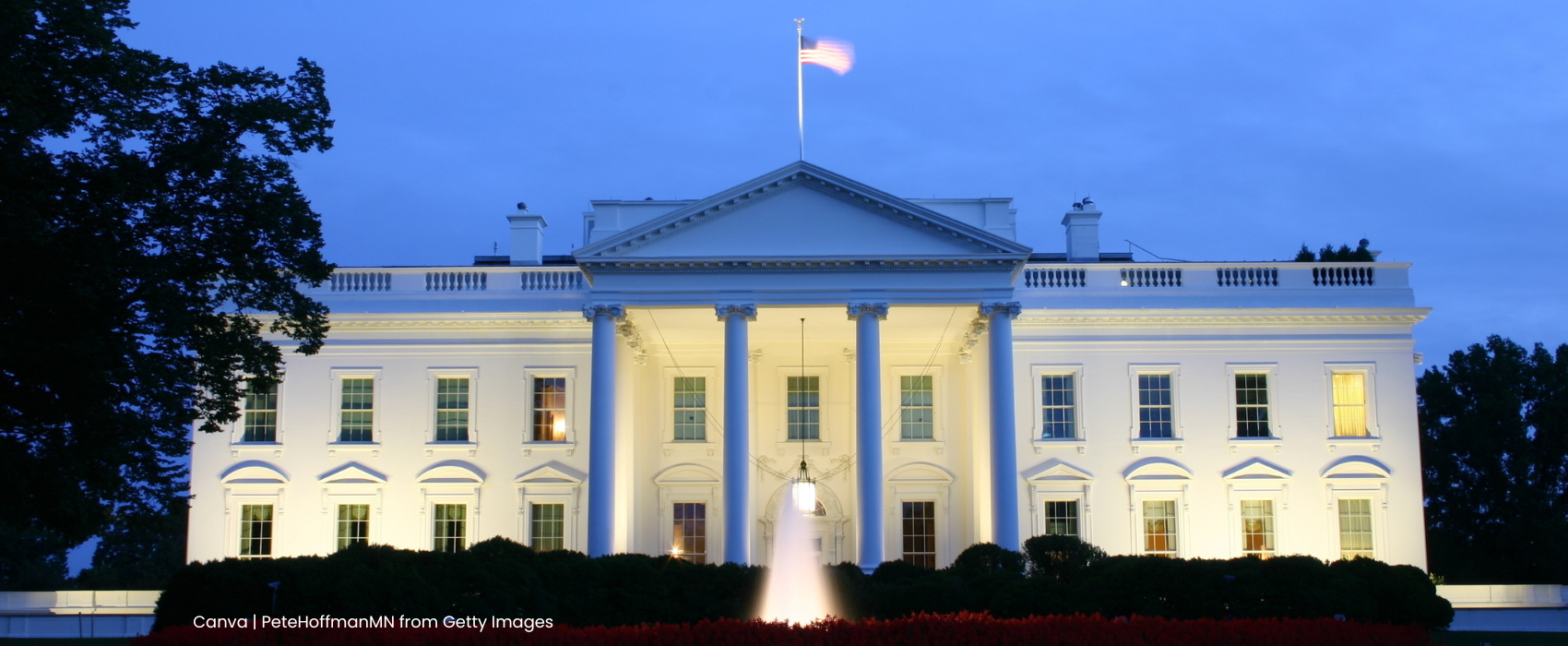In light of recent executive actions by President Donald Trump, our community faces new challenges and uncertainties that could significantly impact both global health initiatives and domestic health policies. These actions include the withdrawal from the World Health Organization (WHO), a pause in foreign assistance, a halt to the U.S. Department of Health and Human Services (HHS) communications, and restrictions on National Institutes of Health (NIH) operations, among others.
The full ramifications of these actions are still unfolding, with numerous legal interpretations and challenges anticipated. In our dedication to supporting our members, we have begun to gather initial insights and are actively working to understand this evolving landscape. What follows is an overview of the actions, as of January 23.
- 90-Day Review of Foreign Assistance, UPDATE: On January 24, Peter Marocco, the newly appointed director of the State Department’s Office of Foreign Assistance, issued a directive that significantly strengthens the existing 90-day suspension of U.S. foreign aid. This directive mandates immediate stop-work orders for ongoing grants and contracts, along with a freeze on new foreign aid expenditures. This action effectively halts nearly all foreign assistance activities, plunging USAID and its global partners into a state of uncertainty. Earlier in the week, the administration had halted U.S. foreign aid for a 90-day period to review alignment with the “America First” policy. This action reduces support for programs addressing climate change, family planning, and disease prevention, directly and immediately impacting global health and vulnerable populations.
- [Update 1/28: This has instigated widespread disruption and potential permanent shutdowns of numerous U.S. aid programs globally. The sudden pause has sown confusion among aid organizations, which now face uncertainties regarding funding continuity, the ability to pay salaries, and the future of their operations and their ability to save lives. For example, PEPFAR programs were halted last week and on January 28 the Trump administration issued a waiver for lifesaving medicines and medical services– for now.]
- Withdrawal from WHO: Trump’s order to withdraw from the WHO could significantly undermine global efforts in health security and pandemic preparedness, distancing the U.S. from its historical role as a leader.
- [Update 1/28: All staff at the CDC who collaborate with the WHO were instructed on Sunday night to immediately cease their partnerships and “await further guidance.”]
- Pausing Communications at HHS: The directive to halt external communications from federal health agencies such as the Food and Drug Administration (FDA), Centers for Disease Control and Prevention (CDC), Advanced Research Projects Agency for Health (ARPA-H), and NIH may hinder public health messaging, affecting everything from pandemic response to routine health advisories.
- NIH Operations Pause: Newly imposed restrictions at the NIH have caused abrupt cancellations of meetings, including grant review panels and workshops crucial for research progress and training. This pause in operations, coupled with a hiring freeze and a ban on travel, has injected uncertainty at the nation’s premier health research institution, potentially delaying critical medical research and development.
- Reinstatement of the Mexico City Policy: Expanded to cover nearly all global health assistance, this policy restricts U.S.-funded NGOs from providing or promoting abortions, potentially limiting access to comprehensive reproductive health services worldwide.
- Climate Change and Health: The administration’s actions, including the withdrawal from the Paris Agreement, signal a reduction in the emphasis on climate-related health policies. This could jeopardize ongoing and future public health initiatives aimed at addressing the health impacts of climate change, such as heat-related illnesses, respiratory problems from poor air quality, and diseases spread by vectors that thrive in warmer temperatures.
- Federal Hiring Freeze and Immigration Policy Changes: These measures could disrupt the functioning of health agencies like the CDC and FDA by freezing hiring and mandating a return to office, potentially slowing down critical health services and research. Tighter immigration controls could further impact the medical sector by restricting the flow of health professionals and researchers into the country.
- Birthright Citizenship Changes: The executive order that revises birthright citizenship criteria may restrict access to healthcare and social services for children born in the U.S. to non-citizen parents, exacerbating health disparities.
- Ceasing DEI Programs: Trump’s order to dismantle diversity, equity, and inclusion (DEI) programs in federal agencies and scrutinize DEI practices in the private sector could impact workplace culture and public health initiatives aimed at reducing health disparities.
- Gender Identity Policy: The executive order that strictly defines gender based on biological sex could have significant implications for transgender and non-binary individuals, affecting their access to healthcare services and potentially increasing discrimination and health disparities.
- AI Safeguards: Trump’s repeal of the Biden-era guardrails on AI, which were designed to manage the risks associated with powerful AI technologies as they are evolving, represents a notable departure from previous efforts to secure AI systems against misuse and unintended consequences. The repeal could impact public trust in AI, given ongoing concerns about privacy, civil liberties, and safety associated with advanced AI systems. It could also catalyze innovation and competitiveness.
The Alliance remains steadfast in its commitment to our members, to our mission of advancing global health innovation and equity, and to share insights during these turbulent times. The strength of our multi-sector alliance is deeply rooted in our collaborative spirit and the diversity of our expertise and perspectives. Together, we can navigate these challenges and foster hope and resilience.
Members Global Health Corps, Global Health Council, Global Health Technologies Coalition, CUGH, North Carolina Global Health Alliance, PATH, Seed Global Health, Stanford, and UC Berkeley have spoken with the press or issued statements. Partners the CORE Group, UN Foundation and UnlockAid are organizing additional advocacy efforts. As we know more, we can unite around a plan that protects the health of our country and our global, interconnected community. If you have more to add, please contact us.
Additional Sources (as of January 28):
- NYTimes | State Department Permits Distribution of H.I.V. Medications to Resume — for Now
- NYTimes | Which Federal Programs Are Under Scrutiny? The Budget Office Named 2,600 of Them
- Devex | Scoop: USAID furloughs hundreds of contractors from humanitarian bureau
- Devex | Trump’s first 100 days: Tracking the impact on development work
- Devex | USAID cancels stop-work Q&A with partners, citing stop-work order
- Devex | ‘Game-changing moment’ in US foreign aid throws everything into doubt
- NYTimes | U.S. Halt to Foreign Aid Cripples Programs Worldwide
- Inside Medicine | Updates on Trump’s Public Health Choke Hold. A Scorched Earth Approach Ensues.
- KFF | Overview of President Trump’s Executive Actions on Global Health
- Devex | Trump’s Executive Order on WHO, Explained
- Think Global Health | President Trump Begins Changing U.S. Global Health Policy
- STAT | The Trump Administration’s Latest Decisions on Federal Health Agencies, Summarized and Explained
- NPR | If Confirmed as HHS Secretary, RFK Jr. Would Have a Vast Global Reach
- NY Times | Trump Administration Halts H.I.V.. Drug Distribution in Poor Countries
- amfAR | Impact of Stop Work Orders for PEPFAR Programs
- STAT | CDC Ordered to Stop Working With WHO Immediately, Upending Expectations of an Extended Withdrawal
- AP | CDC Ordered to Stop Working With WHO Immediately, Upending Expectations of an Extended Withdrawal
- Forbes | CDC Ordered to Stop Working With WHO Immediately
- Devex | Opinion: The Case for Democratizing Global Pandemic Preparedness
- White House | Mexico City Policy
Sources (as of January 23):
- Devex | Exclusive: State Department Issues Stop-Work Order on Us Aid
- Devex | Trump’s Foreign Assistance Freeze Generates Uncertainty and Confusion
- Devex | Trump Wastes No Time on Foreign Aid, Climate, and Health
- Devex I USAID Employees Told to ‘Pause’ Public Communications
- KFF | Trump Administration Withdrawal From the World Health Organization: What’s at Stake?
- GHTC | Statement From the Global Health Technologies Coalition on US Withdrawal From WHO
- The Hill | Trump Signs Executive Order Pausing Foreign Assistance for 3 Months
- The Hill | Trump Signs Executive Order Recognizing Only 2 Sexes
- Politico | Trump Imposes Federal Government Hiring Freeze, Orders Workers Back to Office
- NPR I Trump’s Federal Health Website Scrubs ‘Abortion’ Search Results
- NPR I How will Trump’s Return to the White House Change the Face of Global Health?
- NY Times | Change to Birthright Citizenship Would Affect Visa Holders, Too
- Science | Immediate Pause on Issuing Documents and and Public Communications
- Vox | Trump’s Sweeping New Order Tries to Dismantle DEI in Government — And the Private Sector
- Washington Post | Trump Officials Pause Health Agencies’ Communications, Citing Review
- Washington Post I Here Are the Executive Actions and Orders Trump Signed On Day 1
- Brady Responds to Trump Administration’s Apparent Closure of the White House Office of Gun Violence Prevention
- White House | Withdrawing the United States From the World Health Organization
- White House | Reevaluating and Realigning United States Foreign Aid
- White House | America First Policy Directive to the Secretary of State
- HHS | Immediate Pause on Issuing Documents and Public Communication
- White House | Defending Women From Gender Ideology Extremism and Restoring Biological Truth to the Federal Government
- White House | Ending Radical and Wasteful Government DEI Programs and Preferencing

